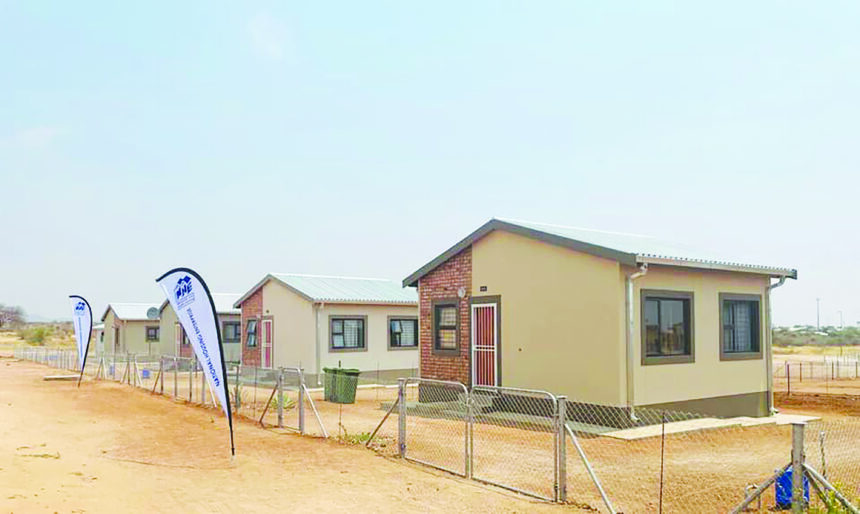The National Housing Enterprise (NHE) recently marked a significant milestone as it finalised a backlog of financial reports that has persisted for more than seven years.
This completion is expected to bring much-needed clarity and transparency to the organisation’s financial standing, which is crucial for maintaining stakeholder confidence.
The reports cover seven audited financial statements for the periods 2017 to 2023.
During NHE’s annual general meeting
a week ago in Windhoek, deputy finance minister Maureen Hinda-Mbuende said the enterprise plays a pivotal role in providing housing solutions for low- and middle-income citizens in Namibia, enabling many to live with dignity in secure homes. However, the delays in financial reporting have raised concerns among shareholders, the public, and customers alike, she said.
“The finalisation of these backlog financial reports is not just an administrative exercise but a step forward, rebuilding the confidence of all stakeholders in the NHE operations. The delays in financial reporting we have experienced over the past seven years have been a source of concern,” said Hinda-Mbuende.
According to the deputy minister, several factors contributed to these reporting delays, including legacy issues such as outdated financial systems, shifting economic policies, and organisational restructuring which created an environment where timely reporting became increasingly difficult.
Compounded by capacity constraints and administrative bottlenecks, the task of reconciling complex financial transactions over multiple fiscal years became a monumental challenge.
The deputy minister further highlighted that despite acknowledging these challenges, there is a consensus that they should not have been allowed to continue for this long.
As the custodian of public finances, Hinda-Mbuende said the NHE’s current financial state reveals significant liquidity challenges that negatively impact the organisation.
This indicates that the NHE struggled to meet its short-term liabilities, especially in the last three years.
“It shows a very low and risky liquidity and ratios which indicate its inability to withstand shocks and still meet its current liabilities. While there are areas of commendable performance, the challenges remain,” she added.
NHE is further faced by other high expenses relative to gross profit that have hindered profitability potential. Over the past three years, the organisation’s profits from operations performed at a decreasing rate, hence the struggle to generate sufficient revenue to increase overall housing output.
In 2022, NHE reported about N$87 million in operating profit, while in 2023 this decreased to about N$38 million.
Operating profit is a key financial metric that represents the earnings a company generates from its core business operations after accounting for all operating expenses but before deducting interest and taxes. It provides insight into how effectively a company is managing its day-to-day operations and reflects its ability to generate profit from its primary activities.
Meanwhile, the deputy minister advised NHE to relook its operational expenses that threaten its operating profit.
The housing deficit in Namibia remains a pressing issue; however, through sound financial management and innovative partnerships, there is optimism the NHE can achieve its goals.
While government has implemented interventions to build houses for the nation, it was reported in the media recently that NHE only built 21 545 houses since its inception 31 years ago in 1993 and is currently dealing with a backlog of more than 300 000 houses.
Shockingly, over 120 000 applicants have been on the company’s waiting list since 2005. Some of the biggest challenges for the NHE have been limited public funding and infrastructure to support both urban and rural development.


